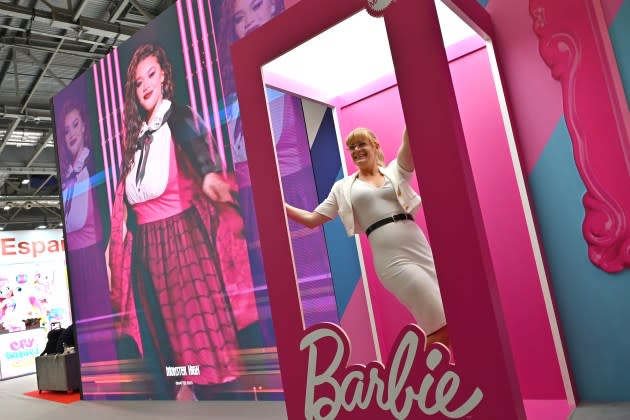‘Barbie’ Lifts Mattel Q3 Results, But Shares Slide In After-Hours Trading

Mattel beat Wall Street expectations in the third quarter for revenue and adjusted earnings per share, thanks in large part due to the successful release of Barbie in July.
Revenue in the period ending September 30 rose 9% over the same quarter a year ago to $1.9 billion. Earnings without a non-cash charge came in at $1.08 per share, up from 82 cents in the year-ago frame. Including the non-cash charge of 59 cents for establishing a valuation allowance on foreign deferred tax assets, EPS totaled 41 cents.
More from Deadline
Analysts had expected earnings of 86 cents a share and revenue of $1.83 billion.
Despite the double beat, Mattel shares slid 7% in after-hours trading after finishing the regular trading day down a fraction, at $20.11. While the stock surged more than 15% through late summer and into the fall as Barbie was percolating through pop culture, it has slumped more recently and is roughly flat for the year.
One drag on shares was a 13% decline in billings at the American Girl unit, as some toy industry analysts have speculated about whether a refresh of the brand could be in order.
Mattel raised its full-year earnings guidance, with CFO Anthony DiSilvestro saying the move was prompted by “our year-to-date performance and expectations for a strong holiday season.”
Barbie represented Mattel’s first serious foray into film or series adaptations of its properties after decades of focusing mainly on the traditional business of making and marketing toys. The Warner Bros. release was the biggest in the studio’s century-plus in business, raking in more than $1.4 billion in global box office receipts. It played in theaters for weeks and will reach many lucrative ancillary and streaming windows in the coming months.
In the official earnings release, CEO Ynon Kreiz hailed Barbie as a “milestone” and a boost to the quarterly results, with a surge of sales for dolls, DreamHouses and other items to go with a cut of box office revenue. The film helped bolster the company’s gross margins, which increased to 51% from 48.2% in the year-earlier quarter. Mattel said that gain was “primarily driven by favorable mix, primarily benefits related to the Barbie movie” as well as other factors.
Best of Deadline
2024 Presidential Election Debate Schedule: Dates, Times, Who'll Be There And Who Won't
SAG-AFTRA Interim Agreements: Full List Of Movies And TV Series
2023 Premiere Dates For New & Returning Series On Broadcast, Cable & Streaming
Sign up for Deadline's Newsletter. For the latest news, follow us on Facebook, Twitter, and Instagram.

